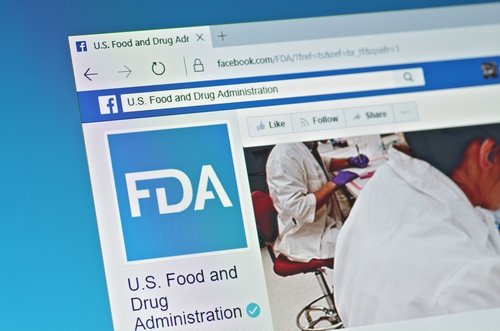FDA Accepts Bioverativ’s Investigational New Drug Application for BIVV001 to Treat Hemophilia A
Written by |

The U.S. Food and Drug Administration (FDA) has accepted Bioverativ’s investigational new drug application (IND) for BIVV001, an investigational Factor VIII therapy designed to extend protection from bleeds in hemophilia A patients.
The FDA will now review the IND application for safety. The Waltham, Massachusetts-based company plans to initiate a Phase 1/2A clinical trial evaluating BIVV001 later this year.
BIVV001 (also known as rFVIIIFc-VWF-XTEN) provides once-weekly or longer prophylactic dosing for hemophilia A patients. It is the only investigational Factor VIII therapy in clinical development to overcome the von Willebrand factor ceiling, which is believed to impose a half-life limitation on current Factor VIII therapies. BIVV001 builds on the company’s Fc fusion portfolio, constructing the therapy in such a way that its time in circulation may be longer.
“People with hemophilia A continue to have a strong unmet need for therapies that can provide protection from bleeds and favorable long-term outcomes in terms of joint health and quality of life with once-weekly dosing,” Tim Harris, executive vice-president of R&D at Bioverativ, said in a press release. “In 2014, we made significant progress toward this goal with the introduction of Eloctate, the leading extended half-life therapy for hemophilia A. This IND acceptance expands on that legacy.”
Hemophilia A, also called factor VIII (FVIII) deficiency, is a genetic disorder caused by missing or defective Factor VIII, a clotting protein. Although it is passed down from parents to children, about one-third of cases are caused by a spontaneous mutation. The disease occurs in about one of 5,000 live births, according to the U.S. Centers for Disease Control and Prevention. About 20,000 Americans have hemophilia.
Rob Peters, senior vice-president of research at Bioverativ, said BIVV001 is the first molecule of its kind to fuse four proteins together to fight hemophilia A.
“We are encouraged by our extensive preclinical data which show improved pharmacokinetics that are independent of von Willebrand factor,” he said, “and look forward to commencing our Phase 1/2a clinical trial later this year.”


